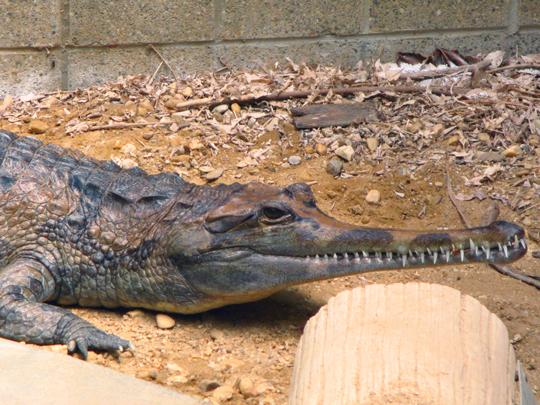The Croc and Gator Blog Jun 25, 2015
By Lauren Augustine
Behind the Reptile Discovery Center (RDC) by the Komodo dragon and Chinese Alligators you can also see one of the most unique species of crocodilians, the false gharial or Malayan gharial or tomistoma. This species is characterized by its slender jaws, hence its scientific name tomistoma, meaning sharp mouth. It is native to the freshwater lakes rivers and swamps in Indonesia and Malaysia and is listed as endangered by the IUCN. Our tomistoma at the National Zoo is a very special individual. She is one of a very few animals that have been successfully hatched in the U.S. Her name, Pip, was chosen because she was the only hatchling in her clutch to pip or break out of the egg and survive. Pip is still a young animal but when she is older, she will be moved to another zoo for breeding. Currently the captive population of breeding tomistoma in the U.S. is mostly older animals, making pip a very eligible female! RDC is lucky to have Pip and excited to share her story. Come by and check out this exceptional crocodilian!Related Species:
